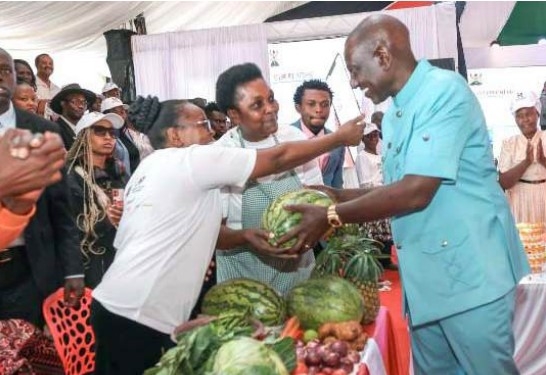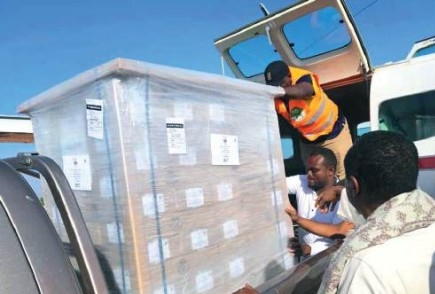More than 30,000 adolescents have benefited from a programme aimed at expanding their access to sexual and reproductive health services.
The adolescents are from Kisumu, Homa Bay and Nyamira counties.
This programme is being implemented through the Zipline and the Elton John Aids Foundation.
Zipline technical lead for Global Health Caleb Wanjala said through the partnership, they have reached out to 32,000 adolescents.
"It is refreshing to see a number of counties, including Kisumu, Homa Bay and Nyamira, integrating on-site mobile clinical services and counting on Zipline to supply family planning, HIV testing, PrEP, ARVs, and other sexual and reproductive health commodities through its instant logistics solution," he said.
Wanjala spoke during the marking of World Aids Day in Ndiru, Homa Bay county.
"Bringing integrated SRH care directly into communities can eliminate young people-reported barriers to health access," he said.
Homa Bay health chief officer Kevin Osuri said such partnerships are significant for the reduction of HIV-Aids problem in the county.
“Zipline and EJAF support has been impressive. We will, in the coming days, execute a full MoU with them given that they have, for the past few months, demonstrated a huge potential for our work within our HIV activities," he said.
"Cumulatively and through their support, we have seen a decline in infection from 17 per cent in 2021 to 15 per cent in 2022.”
Zipline is also delivering refills of self-tests, contraceptives, and medication to local, convenient, private pickup sites.
This decentralised model of care places more choices into the hands of young people, with the goal of significantly reducing HIV transmission among this age group.
















